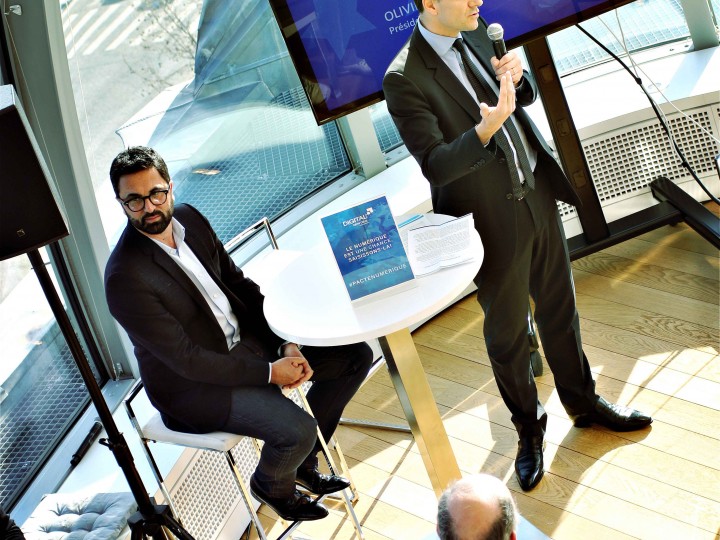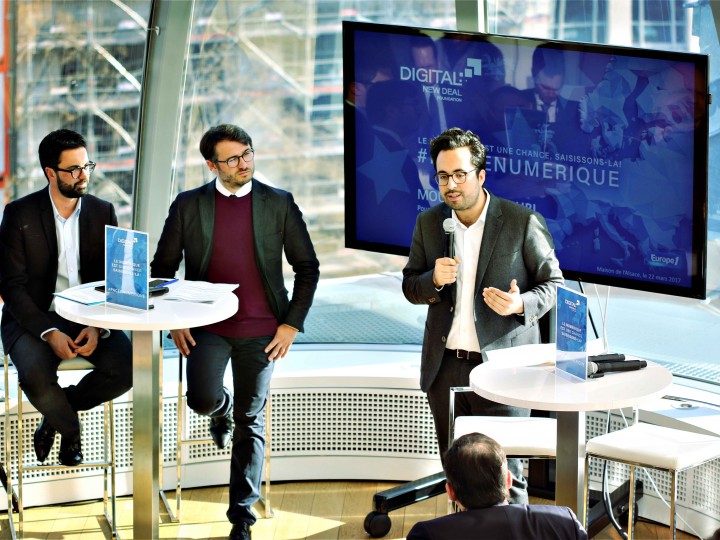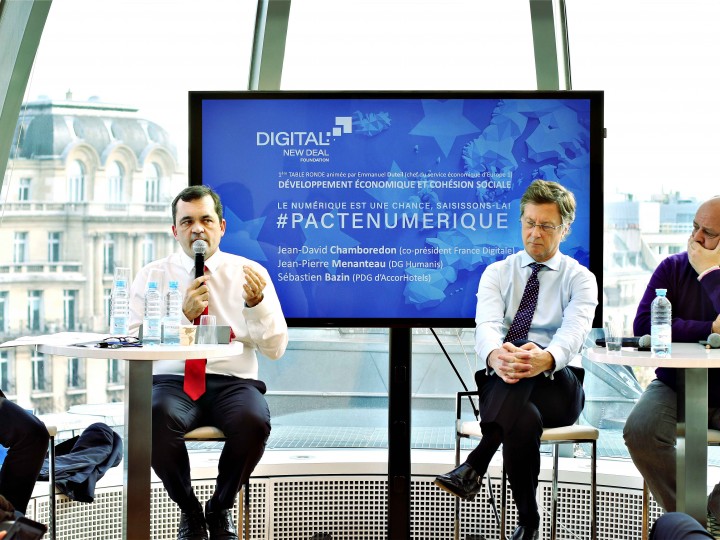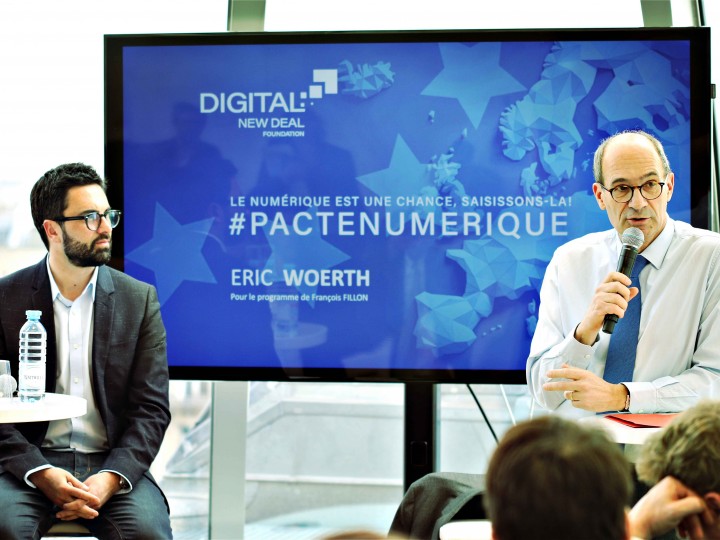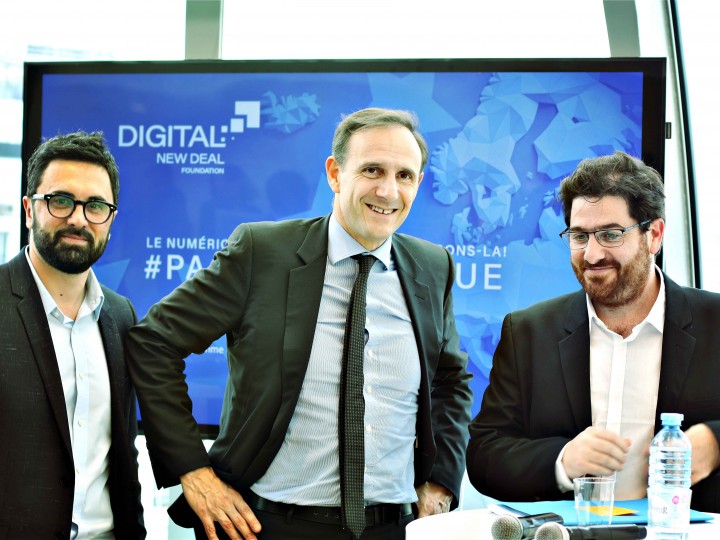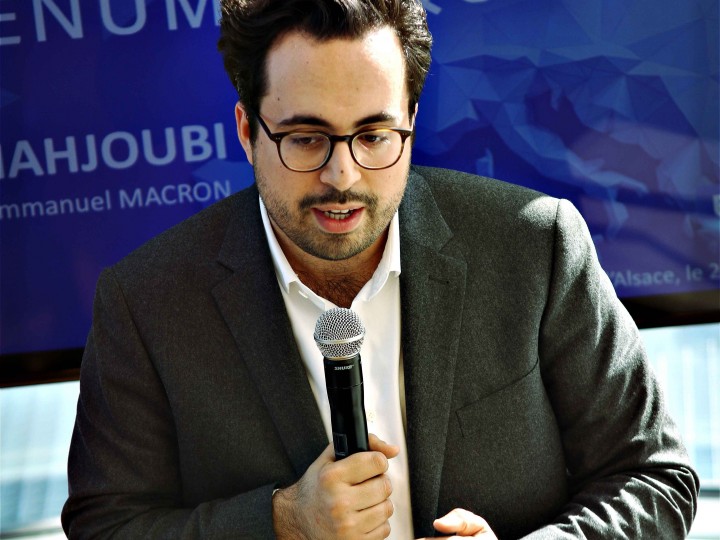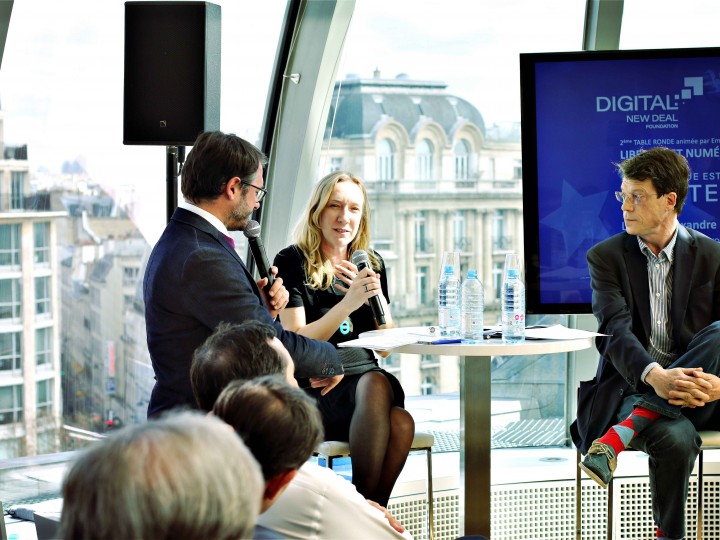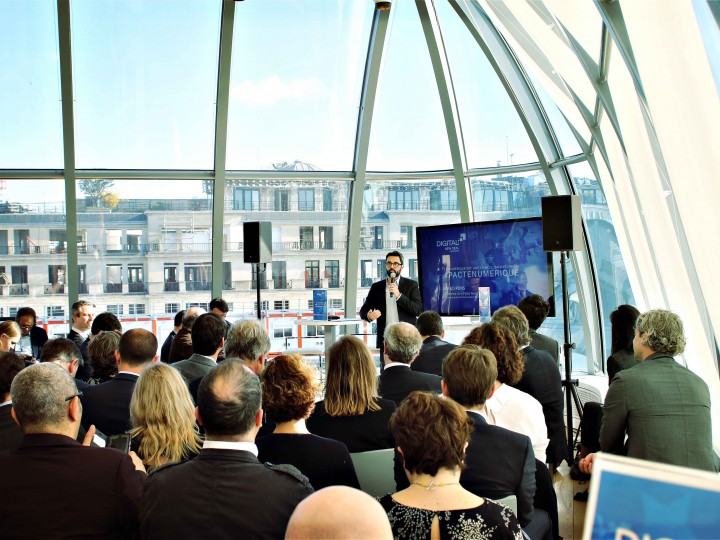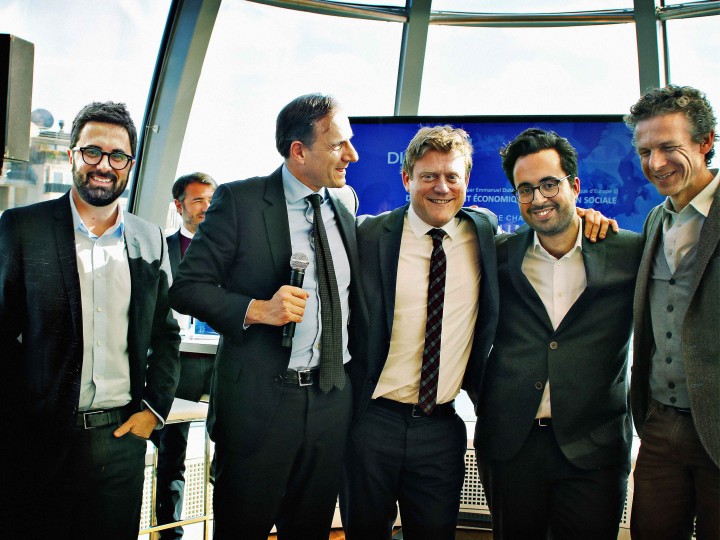Digitalism brings about new societal, economic, cultural and political aspects.
Far from being a sector on its own, digital has become a transformative force of all human activities. The scaled effects that stem from the digital economy favour a winner-takes-all logic. This new paradigm has allowed the emergence of large companies often called platforms, so as to better underline the pivotal role of data in the value chain reorganization of numerous economic sectors.
This digital reorganization undermines competitive, economic and geopolitics balances..
The United-States enjoys certain dominance upon the operators of this transformation, followed closely by the main emerging zones that are Asia and South America. With only 2% of the global capitalization of digital companies, Europe is pushed into the background as a passive witness of the digital revolution. This contributes to reducing Europe to a consumer’s reservoir that is passively producing personal data, thus rendering it dependent on these American and Asian platforms.
The current distribution of forces raises fears about a European economic feudalization and forces us to answer every question regarding the digital revolution. It is essential to address these issues if we do not want to relegate the thinking of our digital future to the current dominant platforms.
The sovereignty of States is challenged.
Large companies providing important services, considerable by some as utopian, undermine the role, and by extension the sovereignty of States. These services are relevant of numerous responsibilities of the state, such as taxation, security, or even the creation of new money.
The obsolescence of current legislation becomes obvious: copyright, intellectual property and media laws turn out to be abruptly unsuitable when faced with the reality of current practices. We must ensure the emergence of new legal concepts such as net neutrality or the right to be forgotten.
Apart from the economy and the law, the very conception of our lives is subject to disruption. Ethics must be called in when it comes to the evolution of privacy, or in the face of the digital-biotechnology alliance, as a harbinger of deeper changes.
Faced with a dynamic digital revolution, the main concern is to actively participate in it, not only to endure it.
This demands an extensive analysis of the current transformation mechanism in order to formulate concrete and balanced regulatory measures, enabling a smooth evolution which would not restrain innovation.
“We must create an enlightened, European and humanist Internet.” (Olivier Sichel, president and founder of the Digital New Deal think tank).
The Digital New Deal Foundation aims to enlighten
the new developments that are taking place in this so-called phenomenon of “digitalization”, and this in a most complete manner. To that extent, we aim to explore and formulate concrete measures needed to support both companies and policy-makers.
Relying on our authors’ expertise and their integration in the public debate, the Digital New Deal Foundation’s work could be used to design a French and European vision of digital regulations regarding the implementation of a balanced and sustainable framework.
- Think&Do
The Digital New Deal Foundation essentially relies on its board of directors.
The board collectively decides the topics that should be addressed, in what order, the designation of an author, the proofreading, the validation and the authorization of publication.
Our work can originate from one of the board directors or from any other person that has a particular expertise, if he or she has been designated by our board of directors. To that extent, the Digital New Deal Foundation consolidates a network of experts on economic, fiscal, legal and societal thematics, so as to permanently enhance and enlarge the scope and quality of its work.
The designated author is free to organize his work as he or she thinks best. Thematic auditions can be organized by the board of directors as to nourish on-going works.
An executive officer (Arno Pons) is responsible for strategic steering with the chairman (Robert Zarader).The organisation also relies on an associate researcher (Olivier Dion, an engineer specialising in new technologies), as well as a representative in Brussels who is an expert in European public affairs..
Our think tank delivers concrete results.
Our organization is proud of the impact of its work, notably through the following political outcomes:
– the “GAFA tax,” following the publication Real Taxation for a Virtual World
– the “Augmented Public Service” announced by the President of the Republic, followed by an action plan led by the Ministry of Public Transformation and Civil Service, transposing the proposals of the Citizen Public Service policy paper
– and of course the famous €2.4 billion fine against Google Shopping for abuse of dominant position, obtained thanks to Margrethe Vestager.
“This is a battle won, but only a step in building a digital Europe,” declared Olivier Sichel in L’Obs, which described him as the leader of the anti-Google fight, following this record-breaking historic fine — the reward for 2,401 days of intense lobbying and struggle by our founder.
In 2021 we expanded our scope of action by creating a DO-TANK.
This economic intelligence offer is the natural extension of Digital New Deal’s activity in our fight to build a third digital way, as an alternative to Big Tech, through the creation of:
– a framework of trust via regulation → THINK-TANK
– an ecosystem of trust via cooperation → DO-TANK
The Do-Tank’s mission is to support companies in structuring their sectors into digital ecosystems through joint initiatives (including industry-wide ones), by creating sovereign technological alliances.
How?
- By leveraging the opportunities created by ongoing and upcoming regulations (DGA, DSA, DMA, AI Act, …)
- By making use of the resulting European funding (calls for proposals requiring consortia).
The Do-Tank has successfully launched several digital ecosystem initiatives inspired by the think tank’s publications:
SCOVERY – The European Cyber Scoring Agency: The Do-Tank supported the realization of the flagship idea from the report Cybersecurity, Guardian of our Strategic Autonomy, proposing the creation of a European sovereign cyber risk rating agency.
INFRATEX – winning consortium of the European SIMPL call (€150M): The Do-Tank drafted the “Sovereign Infratech” strategy and convened public and private stakeholders in the report Trusted Data, thereby helping Sopra Steria form this consortium of 25 companies from 15 European countries, endorsed by Gaia-X and selected by the Commission to deliver the “smart middleware” of the European Data Strategy.
THEMIS-X – dataspace for the tourism sector: The Do-Tank created and fully operates this consortium, which concretely implements the recommendations of the white paper Data Sharing: An Opportunity for Tourism Stakeholders to Regain Control, developed from use cases presented at the Tourism Data General Assembly organized by Digital New Deal and Bpifrance. Themis-X later merged with EONA-X (ADP, Air France, SNCF, Renault, Amadeus, …) to benefit from €20M in funding.
GEN4TRAVEL – Agentic AI for travel: creation of a generative AI dedicated to the agentification of travel assistants (consortium with Mistral AI, Linagora, Capgemini, EONA-X, Docaposte, etc.) based on data from member companies of the EONA-X Data Space, following the white paper ‘GenAI: unite or suffer’ co-published with MEDEF. Project supported by France 2030, with an R&D budget of €3.7 million.
LEGAL DATA SPACE – Data Space for the legal sector: a preliminary initiative for sovereign legal AI by and for the legal sector.
COMPLIANCE-X – Simplify compliance through Data Spaces & AI: a preliminary consortium bringing together five European Data Spaces from four countries, whose ambition is to use data and artificial intelligence as a lever for simplifying and automating regulatory compliance at European level (in accordance with the report by the think tank ‘AI is LAW’).
The Do-Tank’s missions, led by Arno Pons, can be carried out in partnership with major consulting firms and IT service companies (particularly for stakeholder facilitation and integration).
In 2025 we are launching the Digital Resilience Index and the Digital Sovereignty Barometer.
On July 4, 2025, at the Rencontres Économiques d’Aix, we officially launched the Digital Resilience Index alongside Minister Clara Chappaz, Olivier Sichel (CEO of Caisse des Dépôts), Emmanuel Sardet (President of Cigref), MEDEF, and a dozen leaders of major companies.
This was an important milestone for our think tank, proud to provide France — and tomorrow Europe — with concrete tools to steer our strategic autonomy.
This market standard, designed with David Djaïz and Yann Lechelle, is structured around two pillars:
– A Digital Resilience Index (microeconomic level), to help companies map their dependencies and manage their risks.
– A Digital Sovereignty Barometer (macroeconomic level), to guide public policy and orient strategic investments.

